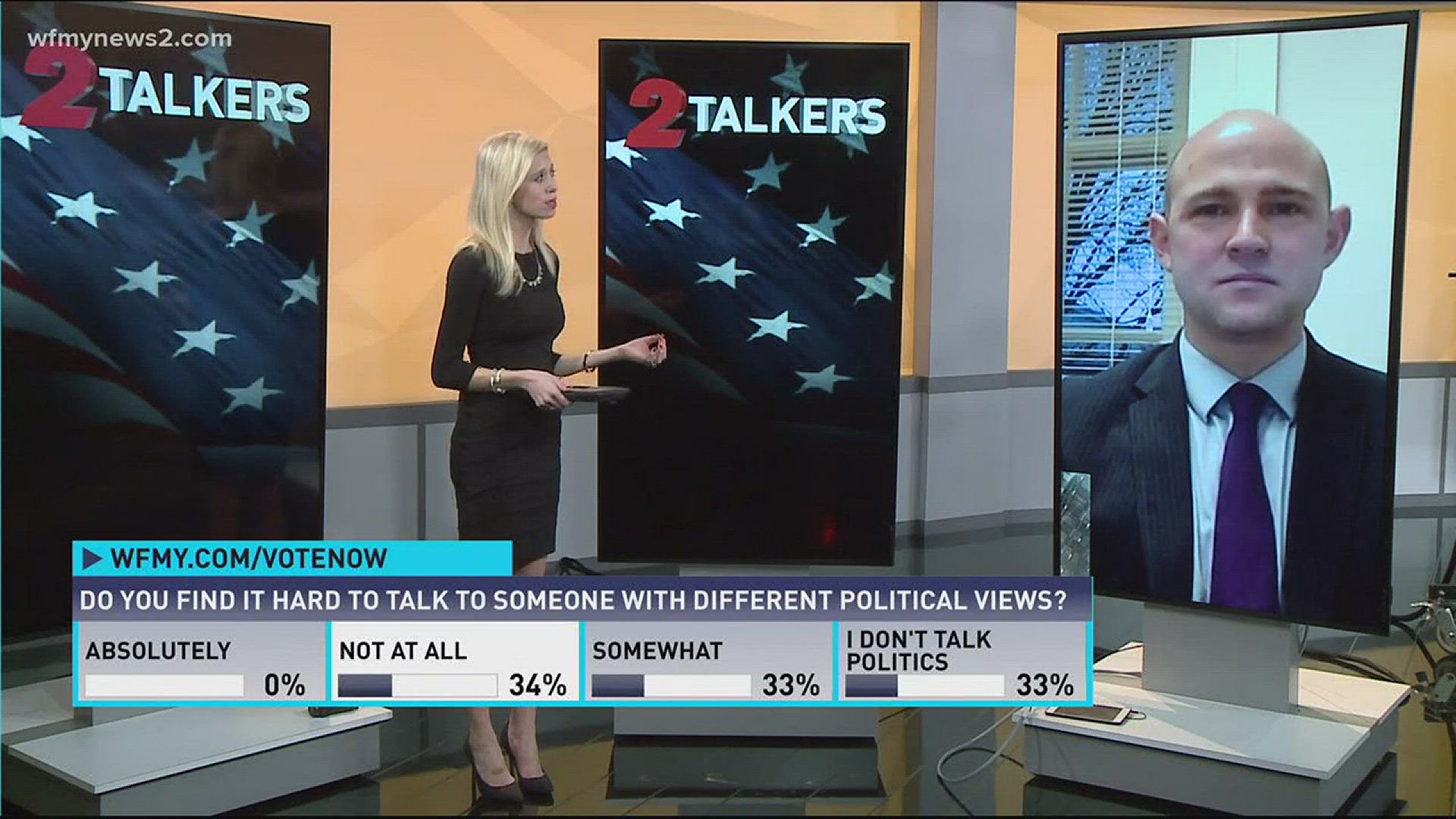Just scroll through the comments of any Facebook article about politics -- you'll immediately feel the deep, often vicious divide between democrats and republicans.
Now, there are statistics to back up that sentiment. In 1990, CBS News started conducting a poll about voters' feelings toward the other party. The most recent poll shows a starkly deepening divide among democrats and republicans. We asked Elon Poll director Jason Husser to analyze why.
In 1990, more than a third of Americans had a favorable opinion of both the democrat and republican parties. Now, it’s just nine percent. Why?
Husser: "The CBS pollsters were smart in 1990 to start measuring partisan dissatisfaction. An older survey series from the 1940s, the American National Election Study, began detecting a pattern of discontent between parties that would grow to become the polarization we hear so much about today. Some of this partisan animosity started after Watergate, Vietnam and Stagflation in the 1970s.
However, the biggest changes in attitudes since Reconstruction happened around 1994 when the GOP, led at the time by Speaker Newt Gingrich, locked horns with Democratic President Bill Clinton. We saw a brief decline in negative feelings between partisans, as captured by surveys, for a few months after the 9/11 attacks.
But, since the summer of 2002, the presidencies of George W. Bush, Barack Obama, and, now, Donald Trump have ushered in an era of partisan discontent perhaps even greater than in the years prior to 1860. We can't be sure that party discord is greater now than it was before the Civil War because we didn't have tools to measure public opinion back then, but we have never recorded divisions as high as we see today in many metrics- and we started recording these things in the interwar period between World War I and World War II."
How you think the findings in this survey stack up to the sentiment among North Carolinians? Do any of your Elon Polls identify feelings toward the opposing party?
Husser: "On the surface, North Carolina looks like a moderate state. We are a swing state, and that means elections are close. However, that doesn't mean that most people in North Carolina are moderates. North Carolina is a swing state only because it has roughly equal amounts of liberals and conservatives, not because North Carolina has more moderates than other states. Elections in our state usually come down to which side is more motivated on Election Day."
What does this sentiment suggest about the political climate in the 2020 election?
Husser: "I thought the 2008 election was as visceral as we would see in a generation, but then 2016 came along. The 2020 election cycle promises to be similarly vicious. In North Carolina, we'll have another cycle with three major high-stakes races: Governor, U.S. Senate, and President. The CBS poll highlights something more pervasive that has been detailed in a body of other research- that partisan attitudes are dividing us beyond the ballot booth. People increasingly choose not just their friends, but where they choose to live, what they choose to buy, who they choose to marry, and which family members they choose to spend time with based on how closely political views align.
The good news is that all of this animosity does seem to foster greater levels of civic engagement, and it seems to have led to Millennials and Generation Z valuing dialogue and civic cooperation more than Generation X, Baby Boomers and the Silent Generation."

